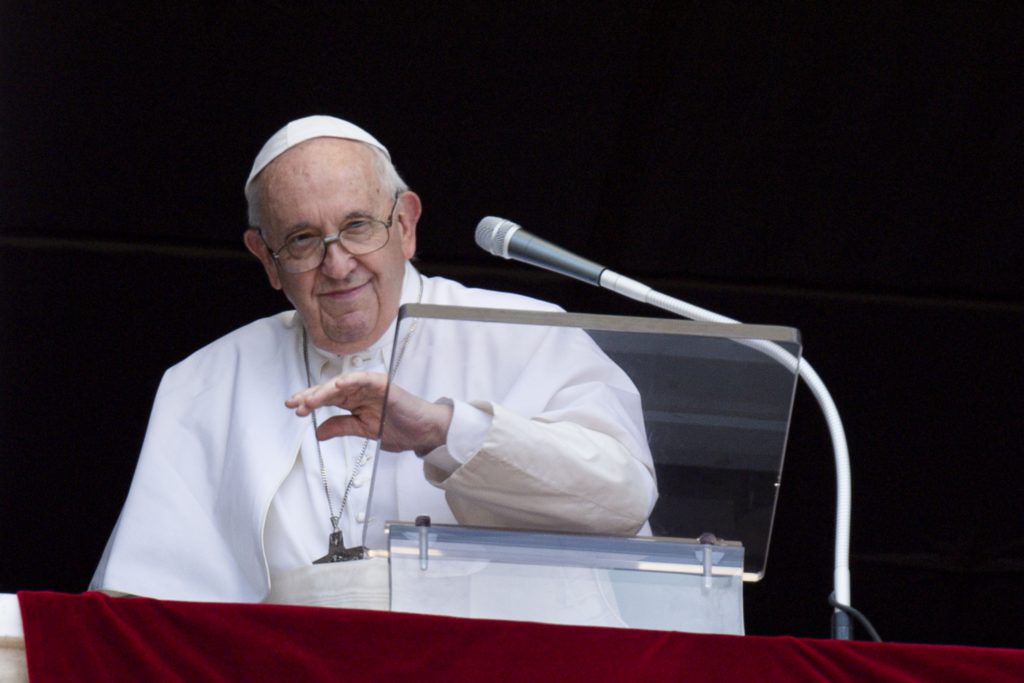In a new wide-ranging interview with Reuters, Pope Francis addressed several hot-button topics, including his health and resignation rumors, the ongoing war in Ukraine, and the recent overturning of Roe v Wade in the United States.
Speaking of the United States Supreme Court’s historic decision earlier this month, the pope said he doesn’t understand the specific legal issues involved in the decision, but respects the decisions of the court and believes abortion is wrong.
On June 24, the United States Supreme Court announced its decision to overturn the landmark 1973 Roe v. Wade ruling that found a constitutional right for abortion rooted in a right to privacy.
In the same ruling, the Court also overturned the 1992 Planned Parenthood v. Casey ruling which reinforced Roe v. Wade. With abortion no longer being recognized as a constitutionally protected right, debate over its legalization now falls to individual states.
In his interview, the pope said he doesn’t understand the ruling “from a technical point of view, I have to study it because I don’t really understand how the ruling was 50 years ago and now I can’t say whether if it did right or wrong from a judicial point of view.”
However, “I respect the decisions,” he said, insisting that legal issues aside, abortion itself “is a problem.”
“In this we have to be scientific, see what science tells us today,” he said, saying, “Science today and any book on embryology, the one our medical students study, tells you that 30 days after conception there is DNA and the laying out already of all the organs.”
“I ask: ‘Is it licit, is it right, to eliminate a human life to resolve a problem?’ It’s a human life, that’s science,” the pope said. “The moral question is whether it is right to take a human life to solve a problem, indeed, is it right to hire a hitman to solve a problem?”
Francis also touched on the topic of communion for pro-choice politicians after U.S. Speaker of the House Nancy Pelosi received communion during a papal Mass marking the traditional feast of Sts. Peter and Paul while in Rome on vacation with her family.
Though Pelosi did not receive communion directly from Pope Francis, who did not preside over the liturgy due to his ongoing knee troubles, the decision raised eyebrows given the recent decision of Pelosi’s bishop, Archbishop Salvatore Cordileone of San Francisco, to bar her from receiving communion in the archdiocese over her support for abortion rights.
The pope said, “When the church loses its pastoral nature, when a bishop loses his pastoral nature, it causes a political problem. That’s all I can say.”
He also addressed rumors that he will resign from the papacy, as his predecessor Benedict XVI did in 2013, due to ongoing health problems related to a colon surgery last year and troubles with his knee.
In the interview, he denied rumors that he has an undisclosed colon cancer and said he had suffered “a small fracture” in his knee, after taking a small misstep while a ligament was inflamed.
Francis, in recent months, has largely been confined to a wheelchair due to ongoing knee pain, but no mention of a fracture was made until now. He was recently forced to postpone his planned visit to the Democratic Republic of the Congo and South Sudan, which should have happened this week.
Earlier in the summer, Francis began using a wheelchair and announced a visit to L’Aquila, where Pope Celestine V – the last pope to resign before Benedict XVI – is buried, and where Benedict visited in 2009, leaving his woolen pallium on Celestine’s tomb.
Pope Francis, in the interview, said, “All of these coincidences made some think that the same ‘liturgy’ would happen, but it didn’t get into my head, it never entered my mind.”
On whether he was thinking about resigning, Francis said, “For the moment no. Really. But the time will come when I see that I can’t do it.”
When that time comes, he said, “I will do it and the great example of Pope Benedict was such a good thing for the church; he told the popes to stop in time. He is great, Benedict.”
Francis also spoke about a possible visit to Russia and Ukraine, which he said could take place after his trip to Canada later this month.
Referring to the potential trip, the pope said, “I would like to go (to Ukraine) and I wanted to go to Moscow first.”
While a possible trip to Kyiv has been on the table for some time, so far there has been no indication about a potential papal visit to Moscow.
Pope Francis and top Vatican officials have repeatedly offered to assist in negotiations in the war in Ukraine. However, this offer, while encouraged by several prominent voices in Ukraine, has not been accepted by Russia.
In his interview, Francis said messages have been exchanged about a possible visit to Moscow, “because I thought that if the president of Russia gave me a tiny window, I would go there to serve the cause of peace.”
“And now it’s possible, after I come back from Canada, it is possible that I manage to go to Ukraine. The first thing is to go to Russia to try to help, but I would like to go to both capitals,” he said, referring to the Russian capital of Moscow and the Ukrainian capital of Kyiv.
“(With Russia) there is still that very open dialogue, very cordial, very diplomatic in the positive sense of the word, but for the moment it’s OK; the door is open,” he said.

